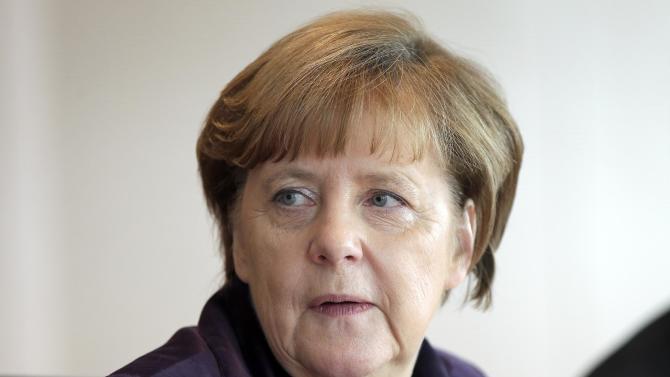Date: Thu, 4 Feb 2016 17:08:22 +0100
BERLIN (AP) — More than 91,000 asylum seekers arrived in Germany last month, the government said Thursday, underlining the pressure the country faces to diminish the influx of migrants.
The Interior Ministry said 91,671 people were registered as asylum seekers in January, compared to 127,320 who arrived in December. Officials have said that winter weather was the driving force behind the decline.
Germany, which has some 80 million inhabitants, has seen more migrants arrive than any other European country. Nearly 1.1 million came last year and officials are keen to ensure that the figures are lower this year. Chancellor Angela Merkel insists that diplomacy is the key to a solution, and has resisted pressure for unilateral measures such as a cap on refugee numbers.
However, the government has moved to toughen asylum policies and has gradually toughened its tone. Last weekend, Merkel said Germany expects Syrians and Iraqis to return home when Syria's civil war is over and the Islamic State group is defeated.
On Tuesday, the Cabinet approved a package of measures that include using special centers to quickly progress migrants who have little realistic chance of winning asylum. It also means some Syrians may have to wait longer to bring relatives to Germany.
Syrians were again the largest single group arriving in Germany in January, accounting for 35,822 of the total. They were followed by Iraqis and Afghans — more than 18,000 came from each country — and much smaller numbers of Iranians and Moroccans.
The government plans to declare Morocco, Algeria and Tunisia safe countries of origin following a recent increase in new arrivals from North Africa, who have very little chance of being granted asylum. That would make it easier to return migrants to those countries, something Germany already did last year for several Balkan nations.
A poll for ARD television released Wednesday showed that 81 percent of respondents don't believe the government has a grip on the refugee situation and that 61 percent were dissatisfied with its work in general. It found that 46 percent were satisfied with Merkel's work, down 12 points from a month earlier and her worst showing since 2011.
The telephone poll of 1,004 people, conducted Monday and Tuesday, gave a margin of error of plus or minus 3.1 points.
